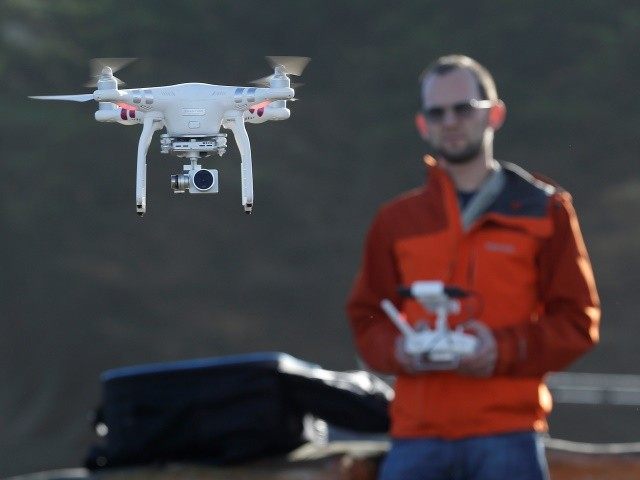A Hispanic man who lives in Laredo has filed a lawsuit against Texas Governor Greg Abbott and the state of Texas to stop a law that allows drone photos and video to be taken along the border. He says Mexicans are being racially targeted.
The lawsuit was filed in Webb County on Friday, the county seat of Laredo, Texas. Laredo is located on the north bank of the Rio Grande river in South Texas, south of San Antonio. The plaintiff, Manuel F. Flores, asks the court to take judicial notice that he lives less than 25 miles from the border.
Mr. Flores complains that a law that became effective in Texas in September 2013 violates his constitutional rights because it unconstitutionally films Mexicans along the southwest border.
The lawsuit claims that the new law, found in the Texas Government Code, “allows the unfettered acquisition of drone-captured imagery ‘of real property or a person on real property that is within 25 miles of the United States border.'”
Flores has filed a lawsuit in state court seeking a declaratory judgment that the law is unconstitutional. He says he has resided in Webb County for decades and currently does so. He says he has been a public servant and is “as deserving of having his privacy respected as anyone else in Texas.”
The plaintiff says he should not be subject to drone photography if drone images cannot be taken as freely throughout the state. His petition states that “those who fly drones and UAS (unmanned aircraft systems) and capture images with them should be able to do so as freely throughout the rest of the entire State of Texas as this statutory provision allows within the artificial strip of lands 25 miles from the U.S.-Mexico border.” He says he and others are having their constitutional rights to privacy and equal protection violated.
Flores cites violation of the Fourteenth Amendment’s Equal Protection Clause, the Supremacy Clause, and the Constitutional Right to Privacy protected by the U.S. Constitution “against arbitrary acts by the government.” He also cites rights protected by the Texas Constitution.
His lawsuit states, “Inexplicably, the Texas Legislature and Governor Abbott has chosen to make this artificial strip of lands 25 miles from the U.S.-Mexico border a playground for drone enthusiasts who would otherwise be precluded from filming people in their homes, washing their cars, gardening in their yard, or simply walking on their private property like Plaintiff Flores.”
He seeks a declaration that section 423.002(a)(14) of the Texas Government Code facially violates the U.S. and Texas Constitutions.
Flores also seeks a declaration that “section 423.002(a)(14) of the Texas Government Code has a disparate impact on persons of Mexican national origin and ancestry that violates the U.S. Constitution and the Texas Constitution; and/or that the acts of Defendants violate Flores’ constitutional rights.”
Marc Rylander, Director of Communications for the Texas Attorney General’s Office told Breitbart Texas, “We take every challenge to Texas law very seriously and will respond appropriately upon our review of the suit.”
Flores asks the court to order the recovery of costs for filing the lawsuit.
Texas Attorney General Ken Paxton will be at the United States Supreme Court on Monday defending against President Obama’s executive amnesty order. Paxton is leading more than half the states in the nation in the case of the United States v. Texas. The federal government is appealing their loss in the lower district court and the U.S. Court of Appeals for the Fifth Circuit.
The Lone Star State took the lead in filing the federal lawsuit in the U.S. District Court for the Southern District of Texas. Twenty-six states joined the fight. Federal district court Judge Andrew Hanen in Brownsville, Texas, issued an order preventing the DAPA (Deferred Action for Parental Accountability) from taking effect and the U.S. Court of Appeals for the Fifth Circuit affirmed Hanen’s decision. The case is set for oral argument on Monday.
As reported by Breitbart News legal editor Ken Klukowski in January, the case marks only the second time in the nation’s history that the U.S. Supreme Court will hear a challenge brought by a majority of the states against the federal government. As Klukowski noted when the Supreme Court decided to hear the case, “This case is of historic importance not only for its impact on immigration, but also its implications for the scope of presidential power under the Constitution.”
Lana Shadwick is a writer and legal analyst for Breitbart Texas. She has served as a prosecutor and associate judge. Follow her on Twitter @LanaShadwick2

COMMENTS
Please let us know if you're having issues with commenting.